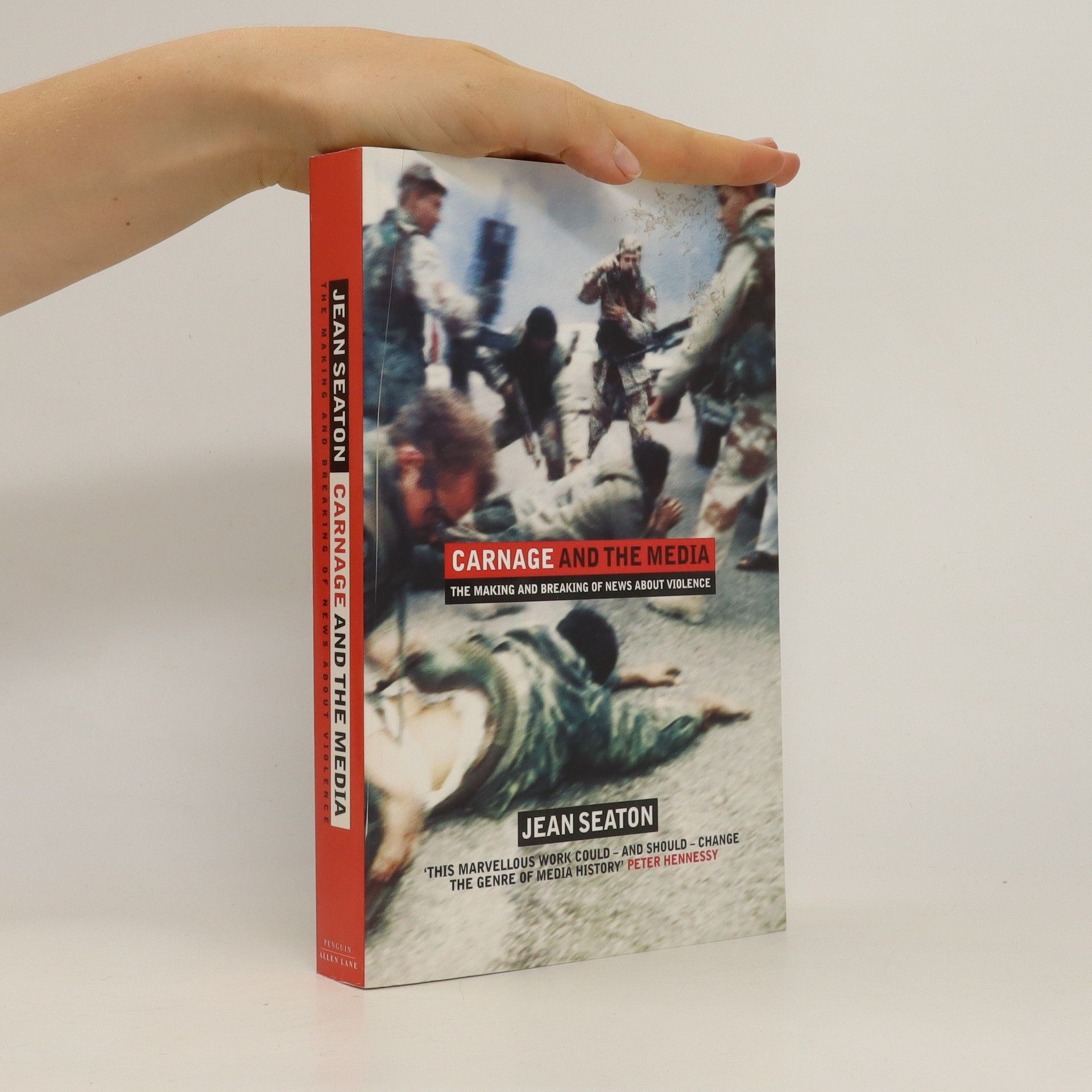Carnage and the Media
- 359 pages
- 13 hours of reading
A gripping and insightful examination of the relationship between news-makers and news-watchers, looking at how images of war and tragedy are presented to us in the media and how we consume them. Jean Seaton argues that print and television news are central to the way in which we understand and respond emotionally to the world. She shows how we now tolerate without question the increasing levels of violence in news reporting and traces the public representation of suffering from ancient Romans through Communist Russia to all those who avidly watch today's breaking news'. Seaton neither harks back to a lost golden age, nor presumes that more news is necessarily better news. This is a celebration of the media, which, despite all its problems, we must embrace as an essential part of a free society.

